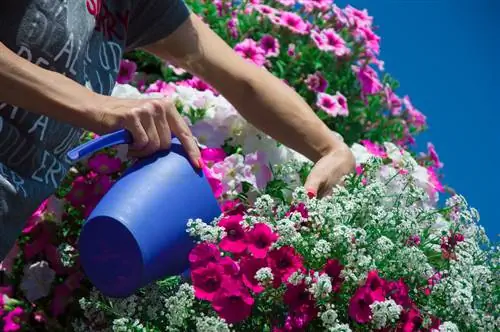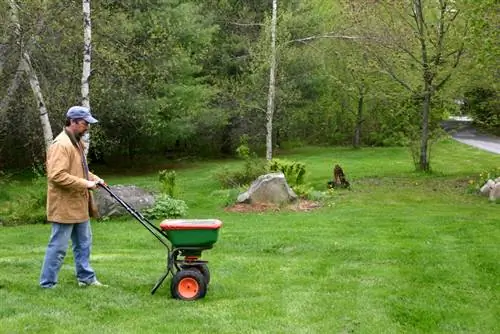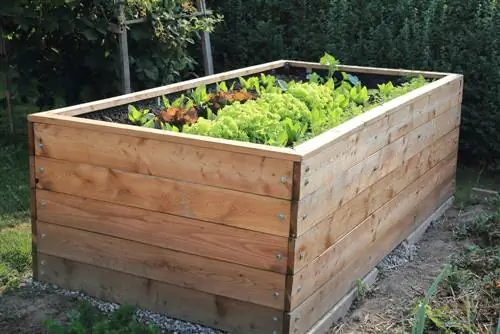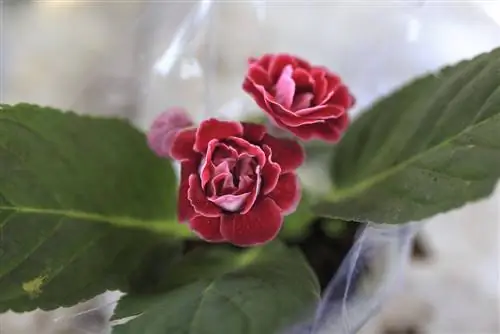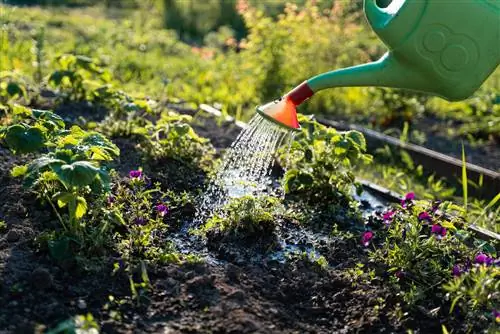- Author admin leonars@hobbygardeners.com.
- Public 2023-12-16 16:46.
- Last modified 2025-06-01 06:02.
In July, things get busy on the balcony. Flowers, perennials and trees planted in May and June are now showing their floral splendor and need to be cared for professionally. So that there is enough time for peaceful hours surrounded by the blossoms, balcony gardeners should set priorities. These tips reveal what is really important in the care program.
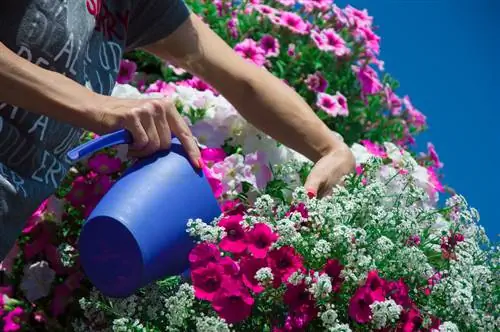
How do I care for balcony plants in July?
In July you should check balcony plants daily for dryness, water if necessary, fertilize weekly, remove wilted flowers and, if necessary, set up an automatic irrigation system for the holidays. Avoid spraying the plants to prevent fungal infestation.
Water and nutrient supply is a priority - you should pay attention to this in July
Sunny sunshine and high temperatures are both a blessing and a curse for your balcony plants in July. Flowers, perennials and trees are at their best in summer when the water and nutrient balance is in balance. How to properly water and fertilize your balcony plants:
- Check the substrate every morning using a thumb test
- If the soil surface is dry, water with stale, warm water
- Add a liquid flower fertilizer to the irrigation water once a week
- Water with clear water before and after fertilizing
Mushroom spores are also booming in July. Please do not sprinkle your balcony plants, but rather apply the water directly to the root disc. Moist leaves and flowers offer pathogens ideal living conditions.
Clean out the wilted things - free travel for fresh flowers
Only a few balcony plants are self-cleaning and shed their withered flowers. To ensure that dead petals do not affect the well-groomed appearance, please clean out anything that has withered every 2 to 3 days. On geraniums or petunias, simply pinch off the dead shoot tips with your fingertips.
Woody balcony plants, such as roses, hibiscus or weigela in pots, require the use of secateurs for professional cleaning. Cut a withered inflorescence back to the next bud. The sun's rays now hitting the flowers signal that the way is now clear for unhindered development.
Tip
So that the summer vacation doesn't end in disaster for your balcony plants, resourceful balcony gardeners install an automatic irrigation system. Clay cones that are inserted into the substrate are practical and proven. Connected to a storage container via thin water hoses, the capillary forces transport the desired liquid through the porous clay material into the dried earth.

